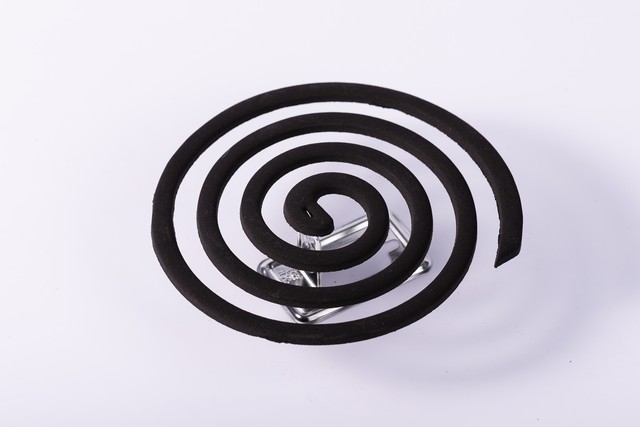January 22, 2024

The therapeutic impact of clean clothes on our emotional well-being cannot be overstated.Chinese EASY ON Speed startch manufacturer The act of laundering, coupled with the freshness and cleanliness of our garments, contributes to a positive mental state. Clean clothes offer a sense of comfort, confidence, and a fresh start. Understanding the importance of laundry detergent goes beyond the physical aspect of cleanliness to embrace the emotional connection we have with our attire. It becomes a tool for self-care, enabling us to navigate life with a renewed sense of positivity and assurance.
Indulge in the opulence of luxurious silk care with SilkLuxury Care, a detergent enriched with non-ionic surfactants.Chinese EASY ON Speed startch supplier Crafted for high-end silk garments and accessories, this detergent ensures a luxurious yet gentle cleaning experience. The opulence of SilkLuxury Care lies in its ability to cleanse silk fabrics without compromising their natural sheen, softness, or color vibrancy. Non-ionic surfactants, with their neutral charge, become the guardians of silk's delicate structure, ensuring a thorough yet opulent fabric care routine.
SilkLuxury Care stands as a testament to the pursuit of opulence in fabric care.EASY ON Spray starch supplier Whether you're treating yourself to the luxury of silk evening gowns or caring for delicate silk accessories, this detergent promises a sophisticated and opulent outcome. Elevate your silk care routine with the non-ionic opulence of SilkLuxury Care.
Indulge in the opulence of luxurious silk care with AllureSilk Elegance, a detergent enriched with anionic surfactants. Crafted for high-end silk garments and accessories, this detergent ensures a luxurious yet gentle cleaning experience. The opulence of AllureSilk Elegance lies in its ability to cleanse silk fabrics without compromising their natural sheen, softness, or color vibrancy. Anionic surfactants, with their powerful cleaning action, become the guardians of silk's delicate structure, ensuring a thorough yet opulent fabric care routine.
AllureSilk Elegance stands as a testament to the pursuit of opulence in fabric care. Whether you're treating yourself to the luxury of silk evening gowns or caring for delicate silk accessories, this detergent promises a sophisticated and opulent outcome. Elevate your silk care routine with the anionic opulence of AllureSilk Elegance.
AllSeasons Clean is designed for year-round versatility, offering a reliable cleaning solution that adapts to different seasons and fabric requirements. This detergent is formulated with a diverse mix of surfactants, ensuring that it can effectively tackle stains and dirt regardless of the weather or fabric type. AllSeasons Clean provides a consistent and versatile cleaning experience for everyday wear.
The versatility of AllSeasons Clean lies in its all-encompassing surfactant blend, making it suitable for various fabrics and seasonal challenges. Whether you're dealing with winter layers, summer linens, or transitional clothing, AllSeasons Clean adapts to your year-round laundry needs, providing a reliable and effective cleaning solution.
Posted by: susuli at
03:43 AM
| No Comments
| Add Comment
Post contains 468 words, total size 4 kb.
May 23, 2023

Mosquitoes are a significant health risk not just because they're pesky pests, but also because they can transmit dangerous diseases. Various mosquito control methods have been developed to protect ourselves and loved ones from these insects. One such method is using cockroach gel, which are widely known for their effectiveness in repelling and killing mosquitoes. In this article, we'll explore the active ingredients found in mosquito coils, exploring their roles and how they contribute to their maximum efficacy.
Pyrethroids are the main ingredient in mosquito coil formulations
Insecticides, such as pyrethroids, are commonly used in insecticide spray. Insects and mosquitoes are paralyzed and eventually die as a result of pyrethroids, which act on their nervous systems. They are synthetic insecticides that are derived from natural insecticides found in chrysanthemum flowers. In mosquito coil formulations, pyrethroids play a key role in repelling and killing mosquitoes due to their effectiveness.
One commonly used pyrethroid in mosquito coils is allethrin. Allethrin has a fast knockdown effect, meaning it quickly immobilizes mosquitoes upon contact. This immediate action is crucial in preventing mosquito bites and reducing the risk of disease transmission. Another popular pyrethroid is d-allethrin, which is known for its long-lasting effectiveness. This extended residual action ensures that the mosquito coil continues to repel and kill mosquitoes for an extended period, providing lasting protection.
Increasing Pyrethroid Efficacy with Synergists
Some mosquito coils often contain synergists, which are compounds that help the pyrethroids work more effectively. Synergists interrupt enzymes in mosquitoes that can break down the pyrethroids, so they remain active for a longer time. PBO is a common synergist in mosquito coils and it works by blocking the enzymes that are responsible for pyrethroid metabolism, which allows the pyrethroids to stay active for a long time. By combining pyrethroids with synergists like PBO, mosquito coils can achieve increased efficacy and effectiveness when repelling and killing mosquitoes.
Binder agents hold the coil together
Apart from the active ingredients, mosquito coils also contain binders that hold the coil together and facilitate its slow and controlled burn. These binders are typically derived from plant materials or other natural sources and are essential in providing structural integrity to the coil, ensuring that it burns evenly and releases the active ingredients uniformly. Without the presence of binders, the mosquito coil would crumble and burn too quickly, resulting in reduced effectiveness and shorter protection periods.
Using fragrances to mask the odor of active ingredients
Additionally, some mosquito coils contain fragrances, which mask the strong odor of the active ingredients and give them a pleasant scent. For some individuals, the odor of pyrethroids and synergists can be overpowering and unpleasant, but fragrances help to mitigate this issue, making mosquito coils much more tolerable and enjoyable. However, it is important to note that fragrances do not directly repel or kill mosquitoes.
mosquito coils have been found to be effective tools in combating mosquito-borne diseases and creating mosquito-free environments. The active ingredients found in mosquito coils, such as pyrethroids, synergists, binders, and fragrances, work together to maximize their efficacy. Pyrethroids act as the primary insecticidal component, repelling and killing mosquitoes upon contact. Synergists enhance the effectiveness of pyrethroids by prolonging their action, while binders ensure the structural integrity of the coil. Fragrances provide a more pleasant user experience. By understanding the active ingredients in mosquito coils, we can make informed choices and utilize these products to their maximum potential, protecting ourselves and our communities from Risk of Mosquito borne diseases
Related articles:
Protecting the environment with eco-friendly mosquito coils
How to Select the Right Insecticide Spray Label
Pest Management with Professional-Grade Insecticide Spray
Posted by: susuli at
03:38 AM
| No Comments
| Add Comment
Post contains 606 words, total size 5 kb.
September 09, 2021

Every hotel restaurant, every home must use towels, the type of towels that people have seen should be many, that you know what type of towels?
柔軟毛巾Today there are more and more different varieties of towels on the market, and we custom towels but so many types, the following towel manufacturers to explain to you the types of custom towels.
A, large jacquard custom towels
In the towel can find some is terry, some is cloth file, this cloth file than terry to look low, through the development of processing technology, this bump can present a variety of floral patterns and pattern design. This type of towel processing process is relatively more complex, the price is also slightly higher than the usual towel.
Second, intermittent custom towels
In addition to the middle of the towel terry, will produce an undulating cloth file, this kind of towel is intermittent towel; its processing process can be a thousand and one; can weave into a variety of fancy and pattern design, to achieve personalized customization of the hotel.
Towel customization
Third, embroidery custom towels
It can embroider various designs on the manufactured towels to enhance the ornamental value of the towels and add some value to them. For example, embroidered so-and-so hotel, it shows that this towel is customized by so-and-so hotel restaurant, can understand at a glance which is a towel, but also brings a certain promotional effect.
Fourth, active printing towel
Immediately printed on the towel of a garment printing dye. Most of what is used today is a new type of environmental protection dye, a non-toxic dye that has long since gradually replaced the general architectural paint printing. Architectural paint printing is very easy to identify. The reactive print has a glossy tone, while the architectural paint print has no gloss, and the architectural paint print's terry or frosted skin will be stained together and not puffy. Architectural coatings are mostly applied with printing font style, wire frame and reduce printing cost fee. Hotel restaurants generally do not apply reactive printed towels, but usually in areas such as fitness sports towels and gift towels.
ç›¸é—œæ–‡ç« :
毛巾並ä¸æ˜¯è¶Šè»Ÿè¶Šå¥½ï¼Œä¸å¸æ°´çš„毛巾全是è€ç„¡è³´!
Posted by: susuli at
09:44 AM
| No Comments
| Add Comment
Post contains 371 words, total size 4 kb.
April 19, 2021

Bamboo fiber can be a form of regenerated fiber, and that is made of bamboo as raw substance, cellulose extracted from bamboo fiber through special high-tech procedure, glue, spinning and other processes. For the reason that the progress of bamboo does not will need to apply all kinds of fertilizers, it will develop negative ions and has antibacterial effect, so it could possibly avoid all kinds of air pollution.
bamboo cutlery setCan children use bamboo fiber tableware?
In most cases, baby can use bamboo fiber tableware, and baby with bamboo fiber tableware is beneficial.
Advantages of bamboo fiber tableware
one. Bamboo fiber tableware is designed of all-natural degraded bamboo, Cereals, corn together with other natural plant uncooked materials. It does not contain any chemical components and might consider very good care of baby's health and fitness.
two. Bamboo fiber tableware is created of pure plant resources and processed with bamboo resources. It is natural antibacterial and it has fine texture, that's convenient for parents to clean.
three. Bamboo fiber children's tableware structure reference kindergarten tableware, can let the baby contact kindergarten daily life the moment doable, minimize the baby's feeling of exclusion. The cute cartoon pattern on the bottom can attract the baby's interest and strengthen the baby's appetite.
4. The mellow layout can prevent the baby from remaining injured accidentally during the procedure of use, and greater ensure the security of the baby.
Precautions for applying bamboo fiber tableware
one. Please check the tableware frequently and discard it in time if it really is damaged.
two. Do not clean with corrosive chemicals.
3. The little black spot inside the tableware could be the green powder part within the bamboo uncooked substance, that's not moldy or defective and can be made use of safely.
Related Links
Quel style de produit choisissez-vous ? Quel est le meilleur moment pour le faire ? C'est plus que
How huge is definitely the market of disposable bamboo goods?
Tips on how to fortify the popularization and application of bamboo fi
Posted by: susuli at
07:10 AM
| No Comments
| Add Comment
Post contains 346 words, total size 3 kb.
June 05, 2017
While good assistants can free us from routine office operations and guard our schedules, great assistants can accomplish routine non-supervisory work normally performed by a manager or executive, freeing us to focus on higher-level tasks.
For those of us fortunate enough to have great assistants, we know how significantly they can improve our effectiveness. I’ve been blessed to have two incredibly great assistants, and while each has moved on to positions of greater responsibility, their contributions remain with me.
High Payoff Contributions
The following four items are tasks (or performance areas) that a trusted assistant can undertake readily, freeing your time of up to a couple of hours a day immediately and dramatically improving the operation of your office — unless it’s already a finely-tuned machine.
1. Be the steward of your schedule. Encourage your assistant to take ownership of the effectiveness of your schedule. Make sure he or she understands your work priority and who can — and should — be allowed to override your planned day. Then, let your assistant begin managing your appointments for you. Meet with him or her every morning and afternoon to review it for a couple of weeks and then reduce the meetings to a frequency that serves you both.
2. Filter and order your email. Really. Why do you need to decide which email you read — and why should you have to repeatedly make that decision based on when someone sends it? People send far too much email and exercise almost no discernment in how to make it more effective. Let your assistant decide what you need to read, and when. How the two of you organize this process is up to you.
3. Take notes on topics of interest to you in meetings. If you’re using your assistant effectively, he or she already has an idea of what kind of information you need to perform your job well. Let them help you obtain it, and encourage them to make you aware of things you haven’t asked about.
4. Identify improvements in office operations. This one’s easy. Or you can make it hard. If you don’t have another person who is the office manager, your assistant will be in a great position to recommend — or simply make happen — improvements in how people and information flow into and out of your organization. Give them the responsibility and authority to do it.
Potential Game-Changers
The remaining four items contain items some managers are comfortable with, and some items many are very uncomfortable with. No one promised management was easy; these potential game changers can help a great assistant help you be vastly more effective.
1. Respond to routine email for you. Many of these are fairly easy. Typical examples include routine requests for information, responses to scheduling emails, and inquiries for which your subject matter expertise or specific decisions are not required. In other cases, allowing your assistant to understand how you would respond to similar messages will enable him or her to draft the responses for your review and transmission.
2. Attend non-decisional meetings for you. If the purpose of the meeting is the distribution of information rather than decision-making, your assistant may free up some of your time for other things by attending these meetings and gathering the information. Then they can summarize it for your review.
3. Demonstrate potential for advancement. Some really great assistants are very happy in that role and have no desire to move to other positions or to acquire additional responsibility, even when demonstrating clear capability for it. Others have the capability and the desire for increased responsibility. Consider giving it to them. Otherwise you lose a great assistant, as well as a potentially high performer for another job.
4. Identify potential talent for you. What?! Let your assistant find talent for you?! Why not? If an assistant has the ability, why waste it? Few people will know your organizational needs and management agenda as well as your assistant, and few people are as well-positioned to "sell†working for you. Does that mean let them hire the talent? No. I’m not suggesting delegating hiring authority. I’m suggesting leveraging available assets to achieve greater effectiveness with limited time and resources.
Posted by: susuli at
07:15 AM
| No Comments
| Add Comment
Post contains 2829 words, total size 19 kb.
30 queries taking 0.0397 seconds, 52 records returned.
Powered by Minx 1.1.6c-pink.









